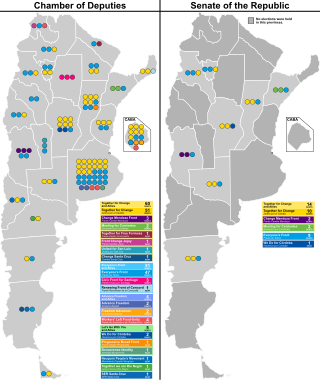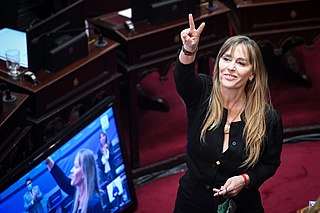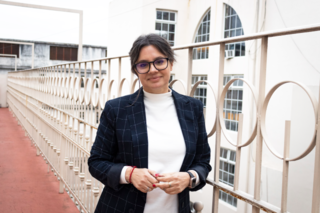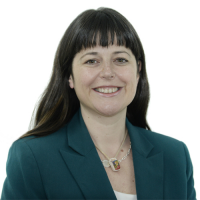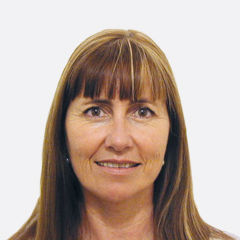| Date | District | Offices | Winner | Runner-up |
|---|
| 10 March | Neuquén | Governor Vice Governor 35 provincial deputies | Omar Gutiérrez - Marcos Koopmann (Neuquén People's Movement) (40,19 %) | Ramón Rioseco - Darío Martínez (Neuquin Front–Citizens' Unity) (25,93 %) |
| 7 April | Río Negro | Governor Vice Governor 46 provincial deputies | Arabela Carreras - Alejandro Palmieri (Together We Are Río Negro) (52,63 %) | Martín Soria - Magdalena Odarda (Front for Victory) (34,97 %) |
| 12 May | Córdoba | Governor Vice Governor 70 provincial deputies | Juan Schiaretti - Manuel Calvo (We Do for Córdoba) (57,38 %) | Mario Negri - Héctor Baldassi (Córdoba Changes) (18,85 %) |
| 19 May | La Pampa | Governor Vice Governor 30 provincial deputies | Sergio Ziliotto - Mariano Fernández (La Pampa Justicialist Front) (52,68 %) | Daniel Kroneberger - Luis Evangelista (Cambiemos La Pampa) (31,80 %) |
| 2 June | Misiones | Governor Vice Governor 20 provincial deputies | Oscar Herrera Ahuad - Carlos Omar Arce (Front for the Renewal of Concord) (72,81 %) | Humberto Schiavoni - Luis Mario Pastori (Together for Change) (17,59 %) |
| San Juan | Governor Vice Governor 36 provincial deputies | Sergio Uñac - Roberto Gattoni (Everyone Front) (55,84 %) | Marcelo Orrego - Susana Laciar (Front with You) (33,91 %) |
| 9 June | Chubut | Governor Vice Governor 27 provincial deputies | Mariano Arcioni - Ricardo Sastre (Chubut Ahead) (41,35 %) | Carlos Linares - Claudia Bard (Chubut Patriotic Front) (33,97 %) |
| Entre Ríos | Governor Vice Governor 34 provincial deputies 17 provincial senators | Gustavo Bordet - María Laura Stratta (Believe Entre Ríos) (57,43 %) | Atilio Benedetti - Gustavo Hein (Cambiemos) (35,57 %) |
| Jujuy | Governor Vice Governor 24 provincial deputies | Gerardo Morales - Carlos Haquim (Change Jujuy) (43,76 %) | Julio Ferreyra - Adrián Mendieta (Justicialist Front) (32,77 %) |
| Tucumán | Governor Vice Governor 49 provincial deputies | Juan Luis Manzur - Osvaldo Jaldo (Justicialist Front for Tucumán) (51,86 %) | Silvia Elías de Pérez - José Manuel Paz (Let's Go Tucumán) (20,41 %) |
| 16 June | Formosa | Governor Vice Governor 15 provincial deputies | Gildo Insfrán - Eber Wilson Solís (Justicialist Party) (70,66 %) | Adrián Bogado - Iván Nicolás Kaluk (Formosan Broad Front) (28,89 %) |
| San Luis | Governor Vice Governor 21 provincial deputies 5 provincial senators | Alberto Rodríguez Saá - Eduardo Mones Ruiz (Justicialist Unity) (42,34 %) | Claudio Poggi - Enrique Ariel Ponce (United San Luis) (34,54 %) |
| Santa Fe | Governor Vice Governor 50 provincial deputies 19 provincial senators | Omar Perotti - Alejandra Rodenas (Together Front) (42,31 %) | Antonio Bonfatti - María Victoria Tejeda (Progressive, Civic and Social Front) (37,91 %) |
| Tierra del Fuego | Governor Vice Governor 15 provincial deputies | Gustavo Melella - Mónica Urquiza (FORJA) (55,03 %) | Rosana Bertone - Juan Carlos Arcando (Fueguin Unity) (40,86 %) |
| 11 August | Santa Cruz | Governor Vice Governor 24 provincial deputies | Alicia Kirchner - Eugenio Quiroga (Santacruzean Accord) (58,59%) | Eduardo Costa - Liliana Andrade (To get out ahead) (32,03%) |
| 29 September | Mendoza | Governor Vice Governor 24 provincial deputies 19 provincial senators | Rodolfo Suárez - Mario Abed (Change Mendoza) (51,63%) | Anabel Fernández Sagasti - Jorge Tanus (Choose Mendoza) (36,21%) |
| 13 October | Chaco | Governor Vice Governor 16 provincial deputies | Jorge Capitanich - Analía Rach Quiroga (Chaqueño Front) (49,32%) | Carim Peche - Roy Nikisch (We Are All Chaco) (31,40%) |
| 27 October | Buenos Aires (in detail) | Governor Vice Governor 46 provincial deputies 23 provincial senators | Axel Kicillof - Verónica Magario (Everyone's Front) (52,28%) | María Eugenia Vidal - Daniel Salvador (Together for Change) (38,39%) |
| Catamarca | Governor Vice Governor 20 provincial deputies 8 provincial senators | Raúl Jalil - Rubén Dusso (Everyone's Front) (60,40%) | Roberto Gómez - Lía Quiroga (Together for Change) (33,46%) |
| Buenos Aires City | Chief of Government Vice Chief of Government 30 legislators | Horacio Rodríguez Larreta - Diego Santilli (Together for Change) (55,90%) | Matías Lammens - Gisela Marziotta (Everyone's Front) (35,06%) |
| La Rioja | Governor Vice Governor 18 provincial deputies | Ricardo Quintela - Florencia López (Everyone's Front) (40,84%) | Julio Martínez - Teresita Luna (Together for La Rioja) (27,90%) |
| 10 November | Salta | Governor Vice Governor 30 provincial deputies 11 provincial senators | Gustavo Sáenz - Antonio Marocco (Sáenz Governor Front) (53,85%) | Sergio Leavy - Emiliano Estrada (Everyone's Front) (26,00%) |







































